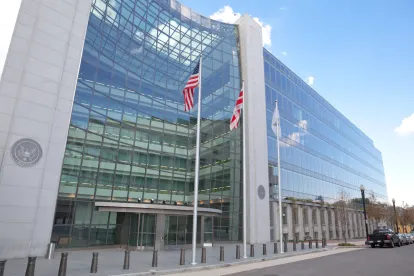On December 30, 2019, the Securities and Exchange Commission voted to propose amendments (the Proposal) to its auditor independence rules, many of which have not been updated since their initial adoption in 2000 and amendments in 2003. The Proposal, if adopted, would codify certain SEC staff consultations and modify certain aspects of the auditor independence framework set forth in Rule 2-01 of Regulation S-X (Rule 2-01), which, among other things, requires auditors to be independent of their audit clients “both in fact and in appearance.” Specifically, Rule 2-01(b) sets forth the general standard for auditor independence, while Rule 2-01(c) provides an illustrative list of relationships and circumstances in which an accountant would not be considered independent, including certain financial, employment, business and other relationships between the auditor and the audit client. In the SEC’s press release announcing the Proposal, SEC Chairman Jay Clayton noted that, “The proposed amendments are based on years of Commission staff experience in applying our auditor independence rule set and respond to recent and longer term feedback received from a wide range of market participants,” and, further, that the proposed amendments would “increase the number of qualified audit firms an issuer could choose from and permit audit committees and Commission staff to better focus on relationships that could impair an auditor’s objectivity and impartiality.” As highlighted in the fact sheet included in the press release, if adopted, the Proposal would, among other things:
(1) amend the definition of “audit client” in Rule 2-01(f)(6), which generally includes each “affiliate of the audit client” (as such term is defined in Rule 2-01(f)(4) and includes entities “under common control with the audit client” that are sometimes referred to as “sister entities”) to include a materiality qualifier, which would give the auditor discretion to determine whether a company under common control with the audit client is material to the controlling entity. The SEC noted in the Proposal, however, that the auditor independence analysis may not be concluded based solely upon a determination that a sister entity is not material to the controlling entity because “auditors and audit clients must consider ‘all relevant facts and circumstances’ when assessing independence pursuant to the general standard in Rule 2-01(b)”;
(2) amend the definition of the “audit and professional engagement period” in Rule 2-01(f)(5)(iii) to shorten the look-back period during which domestic first-time filers must assess and ensure their auditor’s independence from three years to one year (i.e., the immediately preceding fiscal year);
(3) add certain student loans and de minimis consumer loans to the categorical exclusions from independence-impairing lending relationships set forth in Rule 2-01(c);
(4) amend the business relationship rule in Rule 2-01(c)(3) (which prohibits the accounting firm or any covered person from, at any point during the audit and professional engagement period, “having any direct or material indirect business relationship with an audit client, or with persons associated with the audit client in a decision-making capacity,” including, among others, substantial stockholders of an audit client) to replace the reference to “substantial stockholders” with the concept of “beneficial owners (known through reasonable inquiry) of the audit client’s equity securities where such beneficial owner has significant influence over the audit client”; and
(5) replace the transition and grandfathering provision in Rule 2-01(e) with a transition framework to address inadvertent independence violations that only arise as a result of a “corporate event,” such as a merger or acquisition transaction, which new framework would provide that the auditor’s independence is not impaired so long as (1) the services or relationships that would otherwise be the basis for the violation were not prohibited prior to the consummation of the corporate event, (2) the auditor corrects the independence violations arising from the corporate event as promptly as possible and, in any event, no later than six months following the closing of the corporate event; and (3) the auditor has a quality control system to monitor the audit client’s corporate events and related activities to promptly identify any potential independence violations before the closing of the corporate event.
The SEC is soliciting comments on the Proposal for a period of 60 days after publication in the Federal Register.
The full text of the Proposal is available here, and the press release and fact sheet are available here.





 />i
/>i

